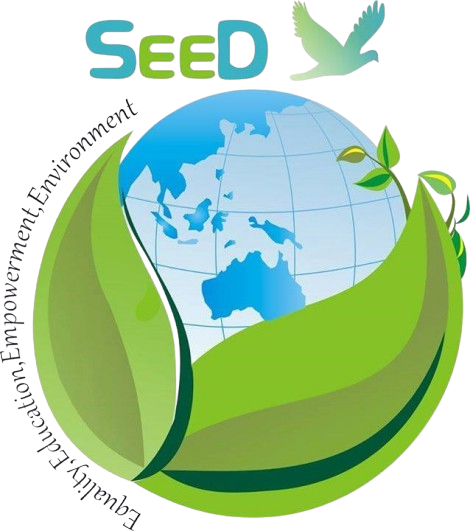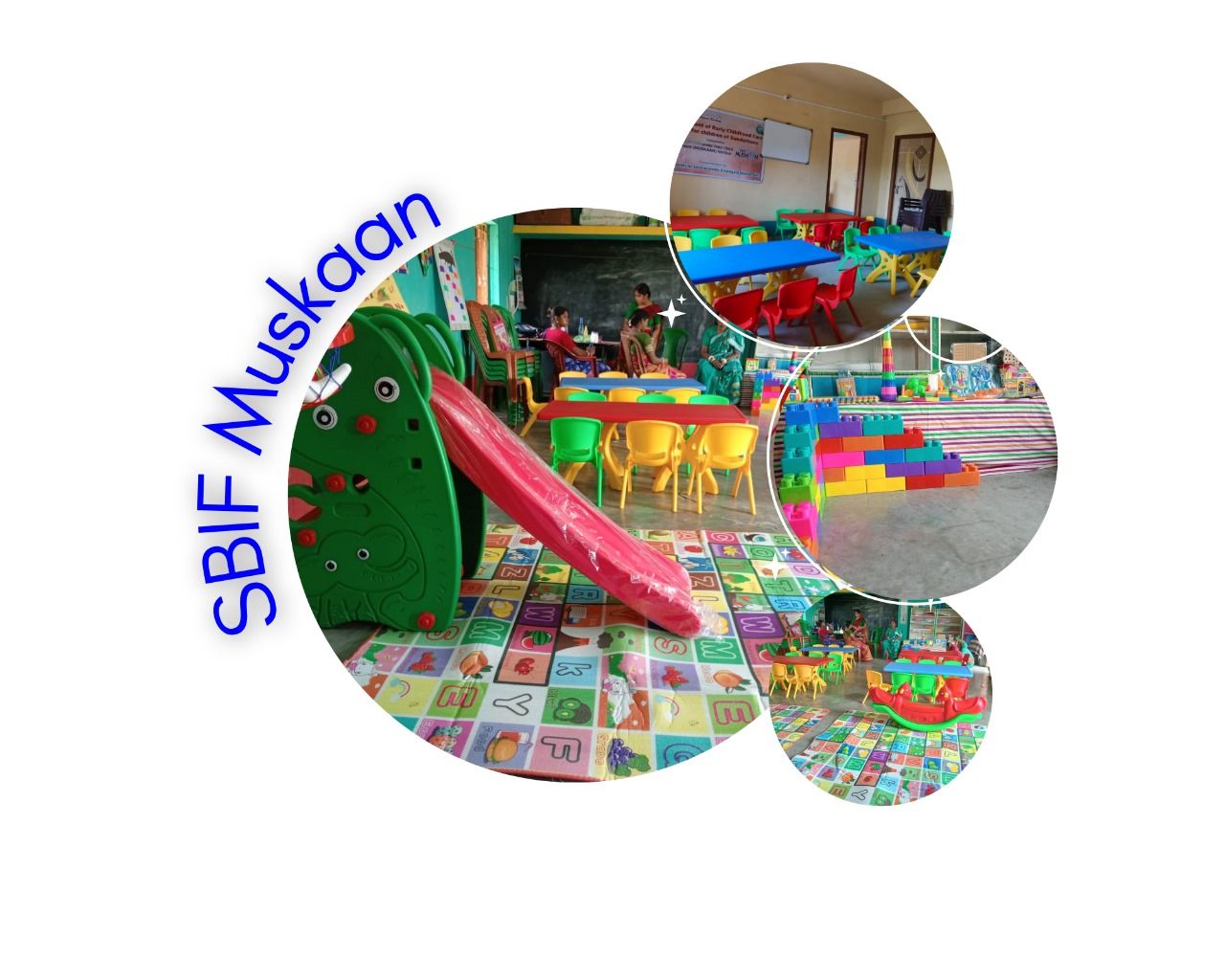Tucked away in the vast delta where the Ganges, Brahmaputra and Meghna rivers meet, the Sundarbans is known worldwide for its spectacular mangrove forests and biodiversity. Yet, beneath this beauty lies a quieter crisis—one that affects thousands of young children across these fragile islands. Early childhood care remains one of the most pressing, yet underserved, development needs in this region
The Silent Struggle of Early Childhood in the Sundarbans
Early childhood care (ECC) in the Sundarbans is shaped by interplay of geography, poverty, climate vulnerability and social factors. Children under six here face heightened risks—malnutrition, limited healthcare, disrupted education and the trauma of displacement caused by recurrent cyclones and floods.
Ghoramara Island in particular, once spanning 26 square km, has now shrunk to just 6.7 square km due to coastal erosion and rising sea levels. The island’s population has dwindled from 40,000 in the 1970s to around 5,193 today (2011 Census), with children aged 0–6 making up over 13% of this population.
For these children, the first five years—a crucial window for brain development, emotional health and social skills—are often shaped by malnutrition, irregular healthcare, educational deprivation and recurring climate shocks.
The Layered Challenges: Nutrition, Health and Learning
In Ghoramara and other coastal blocks, over 90% of the population are landless labourers and fishing families, with precarious incomes. The result is widespread micronutrient deficiencies and undernutrition among children. Seasonal migration further disrupts preschool attendance and poor infrastructure—including damaged Anganwadi centres—affects consistent delivery of early education.
Frequent climatic shocks (cyclones, floods, erosion) also cause repeated displacement, creating a deep sense of trauma and psychosocial stress for children and caregivers. A lack of safe play spaces and structured group activities further hampers social-emotional development.
The Role of Parents—and Their Struggles
Parental care plays a pivotal role in a child’s development, shaping their emotional health, cognitive growth and social well-being. However, for families living in the Sundarbans, this role is often compromised by multiple intersecting challenges.
Economic pressures force many parents—particularly those trapped in cycles of poverty and unstable livelihoods—to prioritise basic survival over consistent child-rearing. Migration and displacement, driven by frequent floods, cyclones and erosion, result in transient living conditions that disrupt stable caregiving environments. In addition, many parents lack awareness about early childhood development due to limited access to education and information. Deeply rooted gender norms also place a disproportionate caregiving burden on mothers, often leaving them overworked and unsupported.
The stress of living in such a fragile, disaster-prone environment further heightens risks of maternal mental health challenges, which in turn can significantly affect parenting capacity and the overall well-being of young children.
SEED’s "Muskaan" Project: A Comprehensive Response
In response to this complex reality, SEED—supported by the SBI Foundation under the "Muskaan" Project—has launched two Early Childhood Care Centres (ECCC), one in Raypara village of Ghoramara Island and one in Radhakrishnapur village of Sagar Island. These centres aim to provide holistic support to children aged 0 to 6 years from displaced and marginalized families, creating nurturing environments that foster their growth and development.
The centres offer daily nutritious meals and fortified supplements to tackle malnutrition, along with quarterly health screenings, micronutrient distribution and deworming to strengthen children’s health. Play-based, pre-primary education fosters foundational literacy and numeracy, preparing children for formal schooling. In parallel, SEED engages parents through monthly workshops on child nutrition, early learning and positive caregiving practices. Special attention is given to mothers’ mental health. Regular health check-ups, psychological counselling and targeted support are offered to help mothers cope with the stress of living in a disaster-prone environment. Trained community health workers help identify postpartum depression and ensure timely referrals and care
The programme sets clear goals. Over the course of a year, SEED aims to improve cognitive and emotional resilience for at least half of the participating children through structured play, storytelling and guided interactions. It also seeks to educate 70 percent of caregivers—particularly mothers—on child nutrition, breastfeeding and positive parenting, with the goal of increasing maternal engagement by at least 15 percent. In many Sundarbans communities, maternal health services are scarce and traditional beliefs often hinder access to professional healthcare. Through this project, SEED is fostering behavioural change, encouraging mothers to seek timely medical care and embrace practices that promote better nutrition and development outcomes for their children.
A Story of Change
Ms. Anita Giri, a 26-year-old landless laborer from Raypara and mother of 3 years old Suman Ghosh and Ms. Durga Bhakta, a 27-year-old Lodha woman engaged in crab collection from the tribal village of Radhakrishnapur and mother to Sampa Bhakta (2.5 years) and Suman Bhakta (3.5 years), initially faced challenges in attending community meetings and Focus Group Discussions (FGDs) due to their demanding work schedules.
To address this, community mobilizers adapted by conducting meetings during early mornings and late evenings, enabling the active participation of working mothers like Anita and Durga.
With their children now enrolled at the SBIF Muskaan Early Childhood Care Centres (ECCCs), both mothers have not only begun participating more actively in the community activities but are also developing a deeper understanding of the importance of holistic early childhood approach—integrating nutrition, learning, physical development and mental well-being.
Importantly, having a safe and nurturing space for their children during the day will allow both women to focus better on their work, without constant worry for their children’s care. Today, Anita and Durga are not only regular attendees at community meetings but have also become strong advocates for early childhood care in their villages.
The other villagers from both the islands expressed great happiness and enthusiasm upon seeing the physical structure of the SBIF- Muskaan. They appreciated the welcoming space created for their children and wholeheartedly committed to supporting the centre’s activities through their active participation.
Laying Foundations for a Resilient Future
The "Muskaan" project adopts an integrated approach to early childhood development, combining nutrition, health, psychosocial support, parental education and school readiness—all tailored to the unique realities of climate-affected Sundarbans communities.
We believe that early investment in childhood care can help break the cycle of poverty and vulnerability for these families. By addressing both the immediate needs of children and the structural gaps that perpetuate disadvantage, we can ensure that children in the Sundarbans grow up with the nurturing care, dignity and opportunities they deserve.
We remain committed to learning, adapting and scaling this model across other climate-vulnerable blocks—because in a region where the tides are rising, the resilience of the next generation must rise even higher.









